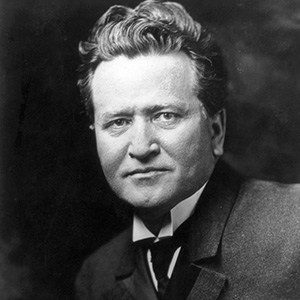Robert M. La Follette Sr., also known as “Fighting Bob La Follette,” was the Progressive Era’s fiercest critic of big business. As the Governor of Wisconsin and member of Congress, he strove to root out political corruption and temper the growing power of Corporate America.
Early Life
La Follette was born in Wisconsin in 1855. After attending the University of Wisconsin, he was admitted to the bar. La Follette first entered public service as the Dane County District Attorney. He went on to serve in the U.S. House of Representative, where he played a key role in passing the Tariff Act of 1890.
Retirement?
After losing his re-election bid the same year, La Follette returned to private practice. However, his retirement was short lived. In response to an apparent bribe by U.S. Senator Philetus Sawyer, the state’s Republican leader, La Follette declared war on the Republican party machine. He later stated:
Nothing else ever came into my life that exerted such a powerful influence upon me as that affair. It was the turning point, in a way, of my career. Sooner or later I probably would have done what I did in Wisconsin. But it would have been later. It would have been a matter of much slower evolution. But it shocked me into a complete realization of the extremes to which this power that Sawyer represented would go to secure the results it was after.
Fight for Progressive Reform
La Follette spent the next several years speaking out against corruption and power within politics. He also formed a new bloc within the Republican party known as the Insurgents, which supported greater voter control and consumer protection.
From 1901 until 1906, La Follette served as Governor of Wisconsin, where he enacted a number of progressive reforms, including the nation’s first workers’ compensation system, greater railroad oversight, minimum wage, and an open primary election system. La Follette was elected to the U.S. Senate in 1906 and served until his death in 1925. During his tenure, La Follette was strongly opposed American involvement in World War I and championed many progressive causes, including breaking up business trusts, protecting workers, and women’s suffrage.
La Follette unsuccessfully ran for President in 1924 as the Progressive Party nominee. However, his legacy as a Senator is unparalleled. He later topped (along with Clay) a 1982 survey that asked historians to list the “ten greatest Senators in the nation’s history” based on “accomplishments in office” and “long range impact on American history.”








